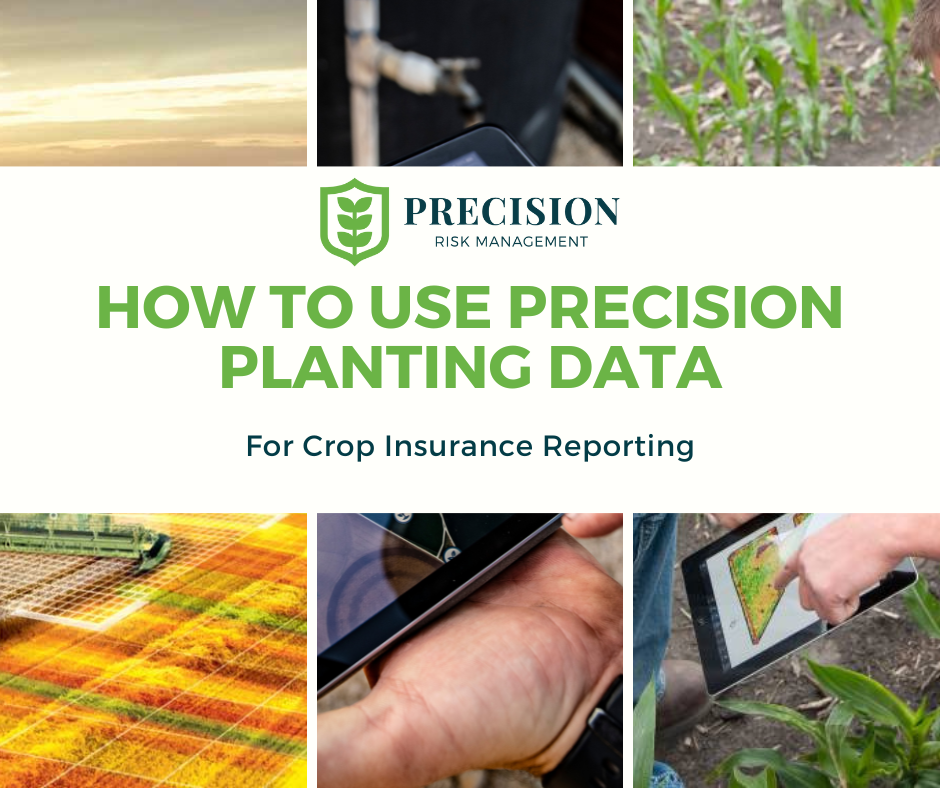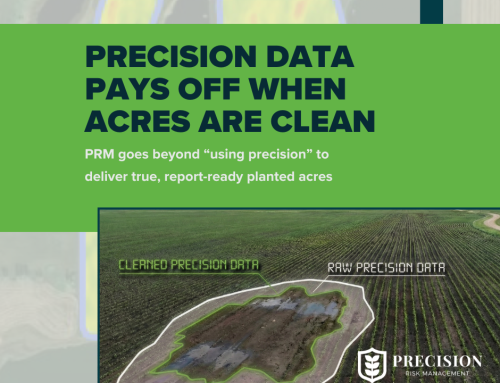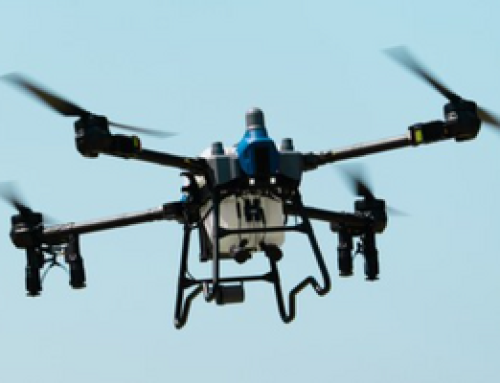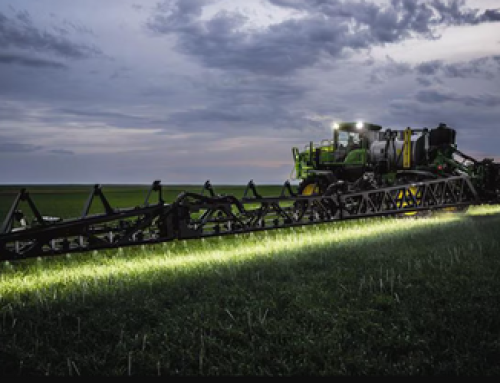Most large growers use precision technology every day. Monitors, GPS mapping, and in-cab technology are all part of how you plant, spray, and harvest. But when it comes time to report acres for crop insurance, many still go back to the old way and don’t use precision planting data. These growers lose time and accuracy pulling settlement sheets or estimating off FSA maps.
That means you’re not getting full value from the data you already collect. Precision data can improve your crop insurance reporting in every way. And PRM makes the process easy.
What Is Precision Planting Data Reporting?
If you’re using monitors in the cab, you’re already collecting the data needed for crop insurance. Precision data reporting means taking what your equipment records during planting, such as acres, crop types, and where it was planted, and using that information to report to your insurance. Tools like John Deere Operations Center, Climate FieldView, and Ag Leader already store this data. PRM helps you turn it into your required planting report without the extra work.
This isn’t about new software or changing how you farm. It’s about connecting tools you already use to your crop insurance policy.
4 Reasons to Make the Switch to Precision Planting Data
1. Set it up Right: Improve Your Policy
With precision data, you report the actual acres planted, not just what’s estimated or what FSA says is in your CLU. That matters, especially in years when you are in a situation of prevent plant or replant. Unlike CLUs or FSA maps that use pre-determined boundaries, precision data reflect what was truly planted. That difference can impact your premium, coverage, claim accuracy, and your APH Database. Read more here.
2. Save Hours of Work
Precision data flows straight into your planting reports when it is set up properly. PRM works with you before planting starts to map your field boundaries. Once planting begins, your data populates into the report automatically. You don’t have to print maps, cross-check acres, or chase paperwork. This saves hours during a busy time of year. This is also true when it comes to harvesting, and you need to do another set of reporting. Double the time saved.
3. Audit Protection
PRM’s Sleep Easy Compliance Promise includes having your precision data on file and ready if a review is ever needed. You already have accurate records on hand. We help make sure they’re organized, accepted, and accessible. You don’t have to scramble to defend your planting numbers.
4. Get Your Claim Faster
When you use precision data, everything is already in place when you have a loss. You don’t have to track down settlement sheets or guess at numbers. The adjuster has organized, GPS-backed planting and harvest data that’s easy to review. That speeds up the claim process and helps you get paid faster. Less back and forth means getting your money faster to help cover your losses.
Getting Started with Precision Planting Data Reporting: What You Need
Using precision data for crop insurance is easier than it sounds. Here’s what you can do right now to get started:
1. Set It Up Right from the Start
- If you haven’t planted yet, let PRM send out a Data Specialist to set up your precision equipment before you get in the field.
- We’ll make sure field names, boundaries, and crop details are entered correctly so your planting data flows smoothly into your crop insurance reports.
2. Know Your Field Boundaries
- If you’ve already worked with PRM, your field boundaries will be set up in advance.
- If not, PRM will help align your precision data with the policy structure (units, crops, sections, etc.).
3. Gather Your Planting Data
- Make sure you’ve saved your planting maps from your monitor or platform (John Deere Ops Center, Climate FieldView, Ag Leader, etc.).
- Export or share planting data with your PRM Advisor. You don’t need to clean it up first. We will do that for you.
4. Confirm Equipment Setup
- Check that your planter monitor recorded acres, varieties, and field names consistently.
- If something is incorrect, your PRM Advisor or Data Specialist can help adjust it for reporting accuracy.
5. Ask for a Precision Review
- Not sure if your data is usable? Send it to us. PRM will review your files and let you know exactly what’s needed to make it useable. And very likely, we can work with it as is.
Let’s Put Your Data to Work
You’ve invested in precision technology to improve your operation. Let’s use that same precision planting data to improve your risk management and make your life easier. Reach out to PRM today with your planting data. We’ll help make sure it works just as hard for your crop insurance as it you do during planting season





